Arthur Leal
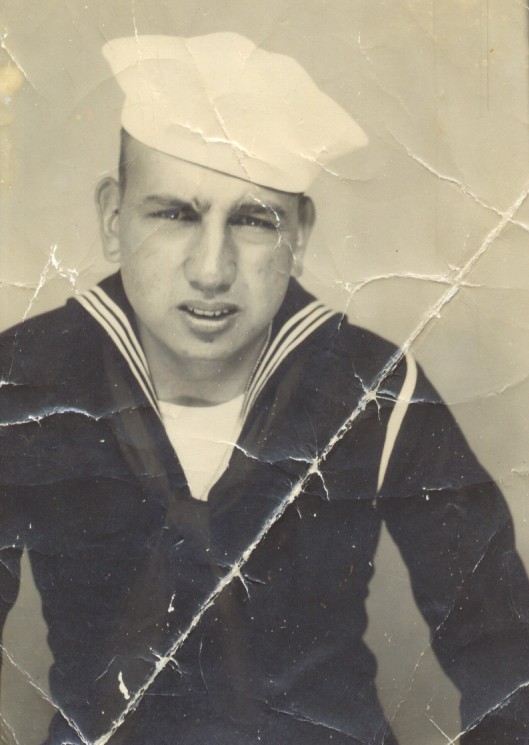
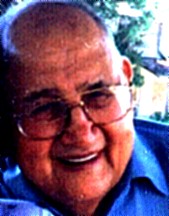


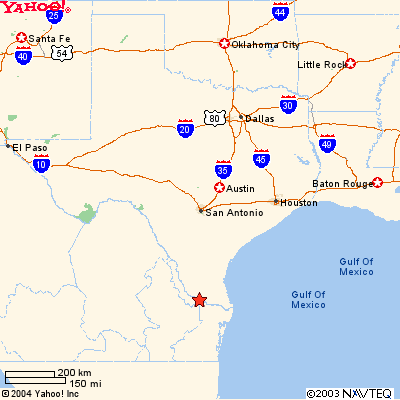
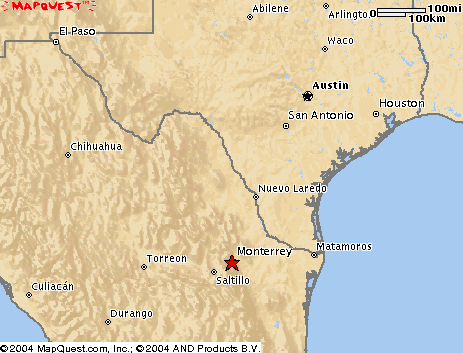
How old were you?
17
What was your job title?
Well, I was a seaman. I got promoted to seaman second class, then seaman first class. And then I got to be promoted to petty officer third class. I was a projectorman on a
5inch 38 when we were engaged in combat. During other times, I was master of arms of the mess hall.
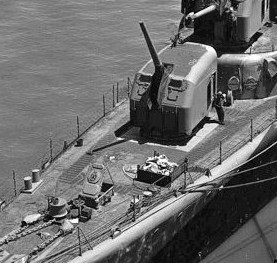
Could you describe your job duties?
As master of arms of the mess hall, my job there was to see that everything was in order in the mess hall. I was master of arms of the ship. Master of arms is the one that sees control of everything being in order. More like law enforcement, but they call them Master of Arms. I was at the bottom of the Master of Arms force. We had second class petty officers and the chief petty officer. Besides being a projectorman on a 5 inch 38 during combat, I was also part of a crew on a 20 millimeter. I was behind the harness pulling the trigger. After so many rounds, we had another man that would change the barrel on the 20 millimeter. That was a more dangerous job than the one on the 5 inch. I was also on the helm. The helm is what you guide the ship with. You stayed on course by the compass on the helm. Another job was on radar. A man plots, and he sees how fast the object is moving, how fast it's coming, and all of that. I also was on a lookout way up on the crow's nest. You could see for miles around, water all over the place. When you're out there, you see nothing but water and maybe another ship around. And then, I used to operate the landing crafts for the Marines. I got transferred, I was on the Destroyer Escort. And then we went on a PA. We stayed there until we unloaded the troops, the Marines, to land them on the beaches so they could fight. The Marines were the ones who were doing all the fighting on land. We would usually do the fighting on the water. Once we finished unloading, we would regroup and I went back to my ship. From Iwojima, we went to Okinawa, where we had already secured the island. The war ended there when the bomb fell in Hiroshima and Nagasaki.
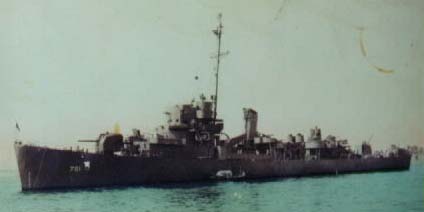
How did you deal with being away from your family?
At first, you get homesick. You miss your family. But you can't be in two places at one time. And I couldn't complain very much because I was a pest. I pestered my mother to sign for me to join. I couldn't go in unless she signed for me. So I couldn't complain much. I made my mother's life miserable for a while until she finally let me go. My oldest brother was fighting in Germany, in Europe. My mother wrote him and told him about it, and he said: "Just let him go because we're suffering a whole lot over here because of the winter. It's a terrible winter over here, and we're freezing and everything. If he joins the Navy, well at least he has a warm place to sleep at night, and food. Over here, we're eating from rations." He's the one that kinda talked my mother into signing. My mother didn't want me to go because she already had three sons over there. But, I got homesick, there's no doubt about it. But I had no complaints. Like I said, when I saw dark places over there, I said, "Man, what am I getting myself into?" But it was too late. See, the reason my mother knew this was because she had been through a war, in Mexico. That's the reason she was over here. She went through the Revolution in 1910. My great-grandfather was a Mexican general in the Mexican army. My grandfather was a military man, too. He used to come every three months or so because he was out there on an army garrison. When he would come, he would stock up on supplies for the family. My grandfather would go in civilian clothes because they were fighting on the streets out there. They would fight from house to house on the streets. My mother was seeing all of that during that time when she was small. She knew all about that. She used to tell us how those soldiers would get when they would get shot. How they let out a yell and they drop dead in the corner out in the street. She had been through that, so she knew what it is like in the war. She tried to tell me, but I was too hard headed. I wanted to find out for myself. I didn't want anybody to go over there and tell me all about it. I wanted to go out there and find out what it was. But, I did get homesick, there's no doubt about it. I guess I braced myself because I got plenty of advice from my mother, I got plenty of talking to. I didn't go into this blind. I knew what I was getting into. I knew that I might not come back, because that's what war and the military is about.
Did you ever fear for your life during the war?
Well, I guess everybody fears for their life. You're scared at one time or another. Things that I see today, I saw at that time, I didn't think nothing of it. You grow callouses, you get brazen about it. Fear, I guess there's a little fear. Everybody has fear. It's something that's instilled in you for self-preservation.
What were the conditions of life like during World War II?
I was on the ship, and I was Master of Arms of the mess hall, so I had it in with the cooks, I had the best of lives, you know. So I had no complaints there. When everybody was eating powdered eggs, I was eating fresh eggs! The officers were the ones who used to eat fresh eggs. Well, I got some of that, too.
Did you receive any medals for your service?
I got the Asiatic Pacific Campaign, the American campaign, the China Service campaign, the Occupational Service campaign, and I got the World War II victory medal. Five of them.

When the war ended, what did you do?
I came home and I had lots of fun. I fooled around for about 60, 90 days, and then I went back to work. I didn't even buy civilian clothes because they let us wear the uniforms 90 days after we were discharged. I used it for about 90 days then I bought some civilian clothes and I went to work.
7up bottling company. Dr Pepper/Seven Up, Inc. 5301 Legacy Drive Plano, Texas 75024-9077. This is the official website of the Dr. Pepper/ 7up company 2004.
Post Office.United States Postal Service. US Postal Service 475 Líenfant PLZ SW RM 10407 Washington DC 20260-2200. This is the official website of the United States Postal Service. 1999-2003.
Monterrey, Mexico.MexicoLIVE. mexicoLIVE 511 E. San Ysidro Blvd. C-498 San Ysidro, CA 92173. This site has city and travel information about the city of Monterrey. 2004.
Los Ebanos, Texas.Texas Escapes. Texas Escapes, PO Box 38, Fayetteville, TX 78940-0038. This website has historical information about the town of Los Ebanos, Texas. 1998-2004.